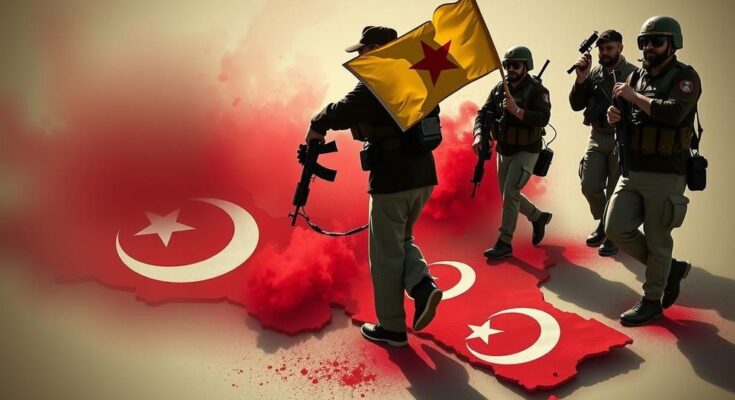Hezbollah’s recent substantial losses due to Israeli military operations have significantly weakened the group’s power and influence, undermining Iran’s strategic position in the region. Following a series of targeted strikes, including the assassination of leading figures, Hezbollah struggles to maintain cohesion and military capabilities, prompting experts to allude to a broader reevaluation of Iran’s reliance on its proxies.
On September 17, 2023, Hezbollah operatives received urgent alerts from AR-924 pagers that had been secretly rigged with explosives, resulting in significant casualties and injuries. The Israeli intelligence agency Mossad executed this operation to convey a message of superiority, emphasizing psychological warfare rather than solely eliminating militants. Subsequent to this event, Israel conducted a lethal airstrike, assassinating Hezbollah’s leader, Hassan Nasrallah, along with key commanders, leading to an internal collapse of the organization, as reported by 60 Minutes correspondent Lesley Stahl.
Following the assassination and sustained attacks, the conflict saw Hezbollah retaliating with missile strikes on Israeli territories and escalating combat through airstrikes and artillery fire by Israel. After 14 months of fighting, a ceasefire was brokered by the United States and France, although tensions continue to simmer with both parties accusing each other of violations. Some Lebanese citizens remain displaced due to the conflict’s irreparable damage to their homes and infrastructure, while Israeli sources estimate they have destroyed approximately 80% of Hezbollah’s military capabilities.
Experts such as Sima Shine and Raghida Dergham reflect on the repercussions of these setbacks for Hezbollah and Iran’s broader influence. They assert that Hezbollah, while reorganizing, has been significantly weakened, primarily due to the losses in leadership and military capacity. The ongoing conflict has diminished Iran’s leverage through its proxy, revealing a critical juncture in regional politics where Hezbollah’s alignment with Iran appears increasingly unsustainable. This shift might compel Iran to reevaluate its reliance on proxy forces for regional prominence.
The recent conflict between Israel and Hezbollah saw a dramatic escalation of hostilities, culminating in substantial losses for Hezbollah. This shift not only signifies a tactical defeat for Hezbollah but also reflects a strategic weakening of Iran’s influence in the region. The article highlights the implications of these events on national security dynamics, regional power structure, and the future of proxy warfare as a strategy for Iran.
The events surrounding Hezbollah’s recent losses highlight a paradigm shift in the Middle East’s power dynamics. As Hezbollah struggles with leadership deficits and military degradation post-conflict, Iran faces a strategic setback that challenges its long-established proxy warfare approach. The ceasefire reflects fragile conditions, suggesting an opportunity for Lebanon to regain control and reestablish its sovereignty away from external influences. Ultimately, this situation may redefine alliances and the role of proxy groups in Middle Eastern geopolitics.
Original Source: www.cbsnews.com




